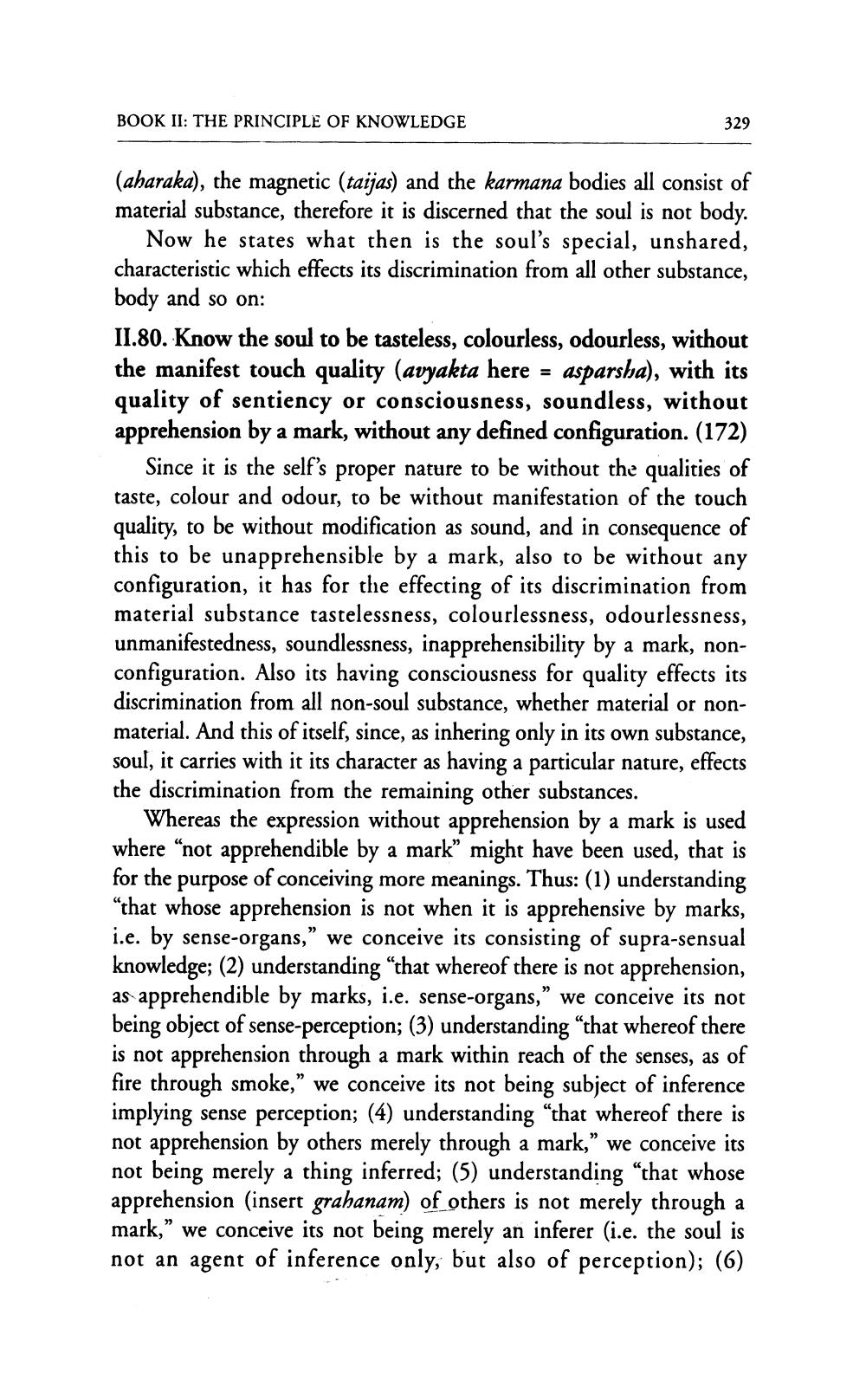________________
BOOK II: THE PRINCIPLE OF KNOWLEDGE
329
(aharaka), the magnetic (taijas) and the karmana bodies all consist of material substance, therefore it is discerned that the soul is not body.
Now he states what then is the soul's special, unshared, characteristic which effects its discrimination from all other substance, body and so on: II.80. Know the soul to be tasteless, colourless, odourless, without the manifest touch quality (avyakta here = asparsha), with its quality of sentiency or consciousness, soundless, without apprehension by a mark, without any defined configuration. (172)
Since it is the self's proper nature to be without the qualities of taste, colour and odour, to be without manifestation of the touch quality, to be without modification as sound, and in consequence of this to be unapprehensible by a mark, also to be without any configuration, it has for the effecting of its discrimination from material substance tastelessness, colourlessness, odourlessness, unmanifestedness, soundlessness, inapprehensibility by a mark, nonconfiguration. Also its having consciousness for quality effects its discrimination from all non-soul substance, whether material or nonmaterial. And this of itself, since, as inhering only in its own substance, soul, it carries with it its character as having a particular nature, effects the discrimination from the remaining other substances.
Whereas the expression without apprehension by a mark is used where “not apprehendible by a mark” might have been used, that is for the purpose of conceiving more meanings. Thus: (1) understanding “that whose apprehension is not when it is apprehensive by marks, i.e. by sense-organs,” we conceive its consisting of supra-sensual knowledge; (2) understanding “that whereof there is not apprehension, as apprehendible by marks, i.e. sense-organs," we conceive its not being object of sense-perception; (3) understanding “that whereof there is not apprehension through a mark within reach of the senses, as of fire through smoke,” we conceive its not being subject of inference implying sense perception; (4) understanding that whereof there is not apprehension by others merely through a mark," we conceive its not being merely a thing inferred; (5) understanding that whose apprehension (insert grahanam) of others is not merely through a mark,” we conceive its not being merely an inferer (i.e. the soul is not an agent of inference only, but also of perception); (6)




